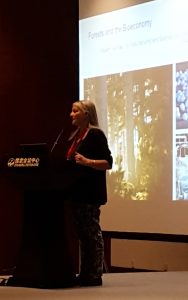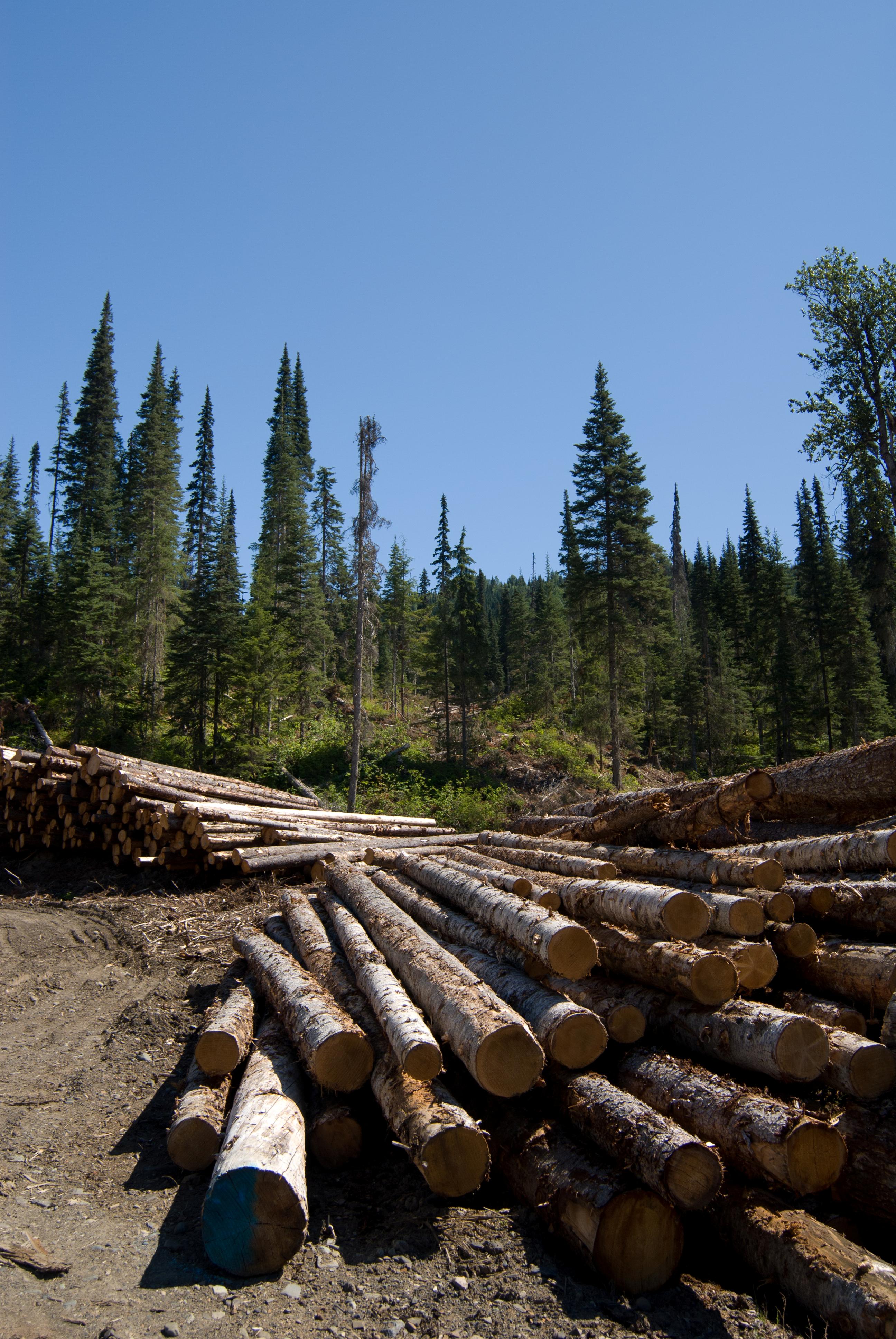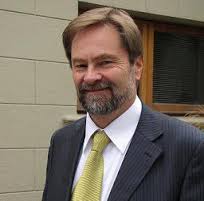Forests and the bioeconomy: challenges and opportunities

Elspeth MacRae delivering her keynote speech. Photo: Gerda Wolfrum, IUFRO Headquarters
Keynote speech by Elspeth MacRae, Scion, New Zealand
Read an interview with Dr. MacRae at: https://blog.iufro.org/2016/09/01/interview-with-dr-elspeth-macrae-scion-new-zealand/
Find biographic information at: http://www.iufro.org/events/congresses-regional/#c25751
The future holds tremendous challenges for the world with the increase in population probably being the largest one. As a consequence, we expect a need for a 70% increase in the amount of food available by 2050. The demographic changes and new lifestyles will put a growing pressure on the natural resources, exacerbate the effects of climate change, deplete soils and make water a scarce commodity, among other things. Read more…
A changing forest sector: Globalization triggers bio-economy and the search for new business opportunities
Scientists, practitioners and decision-makers from around the world meet in Vancouver, Canada from 27 to 30 August 2013 to discuss the implications of globalization on forests and their management.
PDF of Press Release for download
(Vancouver/Vienna, 27 August 2013) Globalization is changing forests and the forest sector. Increases in international trade and investments have altered the global business environment for forestry. The growing world population moving towards nine billion by 2050, economic growth, rising resources demand and increasing environmental concerns are other drivers fostering transformation in forestry and the management of forests. New players enter the global market, and the bio-economy –– the production of ‘green’ products from renewable resources –– is gaining weight. From 27 to 30 August 2013, more than 100 representatives from research, industry and government will discuss how global trends influence forest resources, and how new opportunities for forest entrepreneurs and a more resource efficient society can be harnessed. The Conference has been organized by the University of British Columbia (UBC), Faculty of Forestry, on behalf of the Task Force “Resources for the Future” of the International Union of Forest Research Organizations (IUFRO).
IUFROLAT III Keynote Address Highlights: Hans Grosse Werner, INFOR Director General, Chile
Results of a stable state policy in support of forests: the case of Chile
Friday, 14 June 2013At the beginning of his speech Hans Grosse Werner congratulated the congress organizers on this splendid event and underlined that this congress will certainly have increased the visibility of IUFRO in Latin America.
The focus of the presentation was on the development of forest cover and forest legislation and institutions in Chile with particular emphasis on forest plantations, production and exports, progress made and pending tasks for the future.
Grosse gave an overview of Chilean forest history from prehistoric times to colonialism and the dramatic loss of forest cover mainly due to mining activities in the 19th century, and important steps in implementing regulative legislation in the 20th century.
“Thanks to the policies and laws that were introduced between 1912 and 2011, about 30% of the native forest could be recovered and 2.6 million ha of plantation forests could be added so that the overall forest cover in Chile eventually amounts to 16 million ha today”, said Grosse.
These legislative instruments relate mainly to the introduction of inventories, reforestation programmes, management plans, conservation areas and the development of forest curricula. However, the establishment of institutions to implement and control these regulations and ensure sustainability lagged somewhat behind. The Chilean forest institute INFOR and the national forest corporation CONAF were only founded in 1961 and 1973, respectively. A Ministry for the Environment was set up in 2010.
Yet, despite the progress made, there are still challenges to be overcome. One of these, says Grosse in conclusion, is the strengthening of the small and medium-sized forest-related enterprises. There are incentive programmes in place, but more needs to be done.
This keynote address was the final one in a series of high-level keynote speeches presented in the course of the 3rd IUFRO Latin American Congress.


